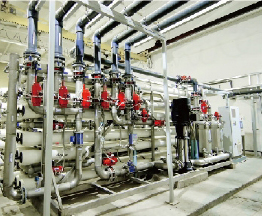Wastewater treatment system
- Tel:0550-7660111
- Fax:0550-7661008
- Email:1198754344@qq.com
Description
Laboratory wastewater mainly comes from the laboratory of scientific research units and the scientific research and teaching laboratories of colleges and universities. Laboratory wastewater has its own special properties, small amount, strong discontinuity, high harm, complex and changeable composition.
According to the nature of the main pollutants contained in the wastewater, it can be divided into two categories of laboratory organic and inorganic wastewater:
Inorganic wastewater:
It mainly contains heavy metals, heavy metal complexes, acids and bases, cyanides, sulfides, halogen ions and other inorganic ions.
Organic wastewater:
Contains commonly used organic solvents, organic acids, ethers, polychlorinated biphenyls, organophosphorus compounds, phenols, petroleum, grease and other substances.
In contrast, organic wastewater is more widely polluted than inorganic wastewater, and the harm is more serious. Different wastewater, the composition of pollutants is different, and the treatment method and degree are not the same. The treatment of laboratory wastewater is based on the principles of classified collection, on-site, timely in-situ treatment, simple operation, waste treatment and cost reduction.
The treatment of laboratory wastewater can not be equivalent to industrial wastewater treatment, but the use of multi-unit treatment process system or targeted classification treatment, as far as possible to reduce the difficulty of treatment, so that the treatment cost is low, the operation is relatively simple. Laboratory organic wastewater treatment methods can be used for reference to other organic wastewater treatment.
In general, organic wastewater treatment technology mainly includes biological method and physicochemical method:
For laboratory wastewater with high concentration of organic matter, strong toxicity, unstable water quality and quantity, biological treatment is not good, while physicochemical treatment of such wastewater shows obvious advantages. The recycling of experimental drugs, the classification and recycling of laboratory waste can not only reduce the pollution to the environment, but also reduce the waste of chemicals. For high-concentration laboratory organic wastewater, the organic solvents such as alcohols, esters, organic acids, ketones and ethers are recycled and then treated with chemical methods. The organic wastewater with high concentration, high toxicity and can not be recovered needs to be centrally incinerated.



